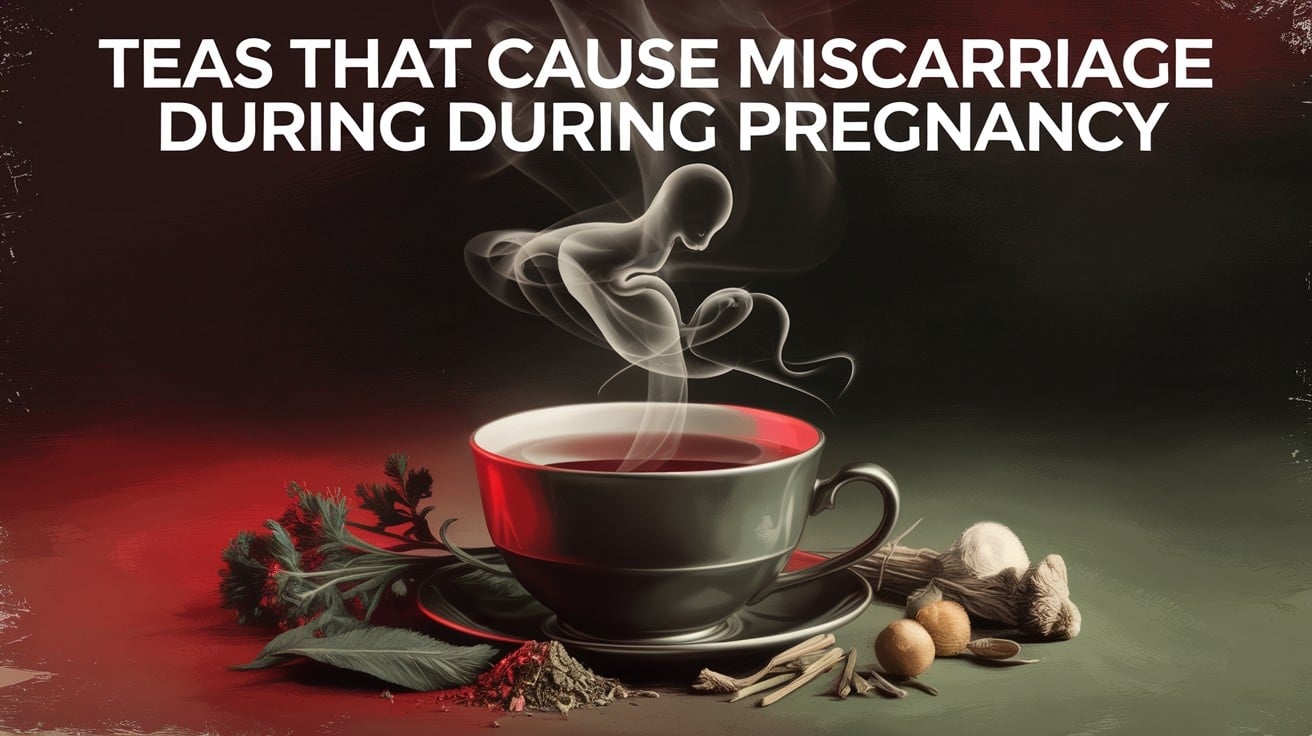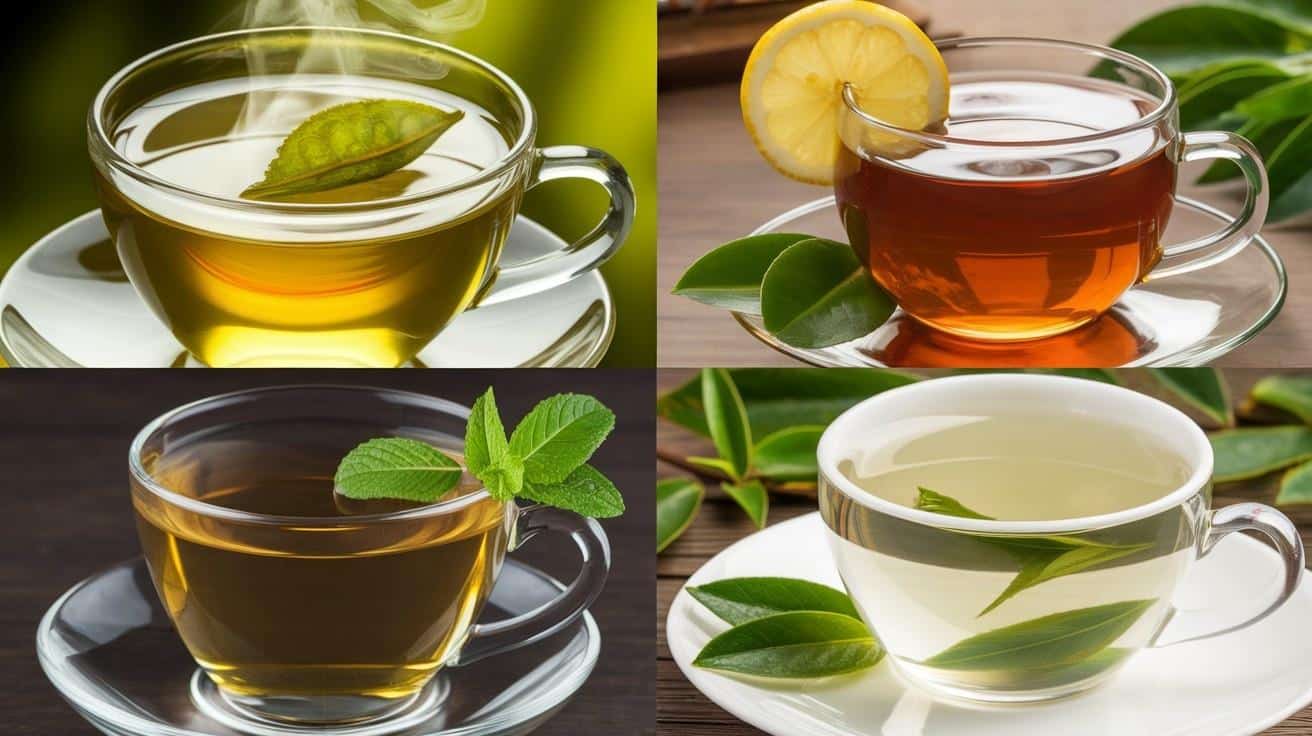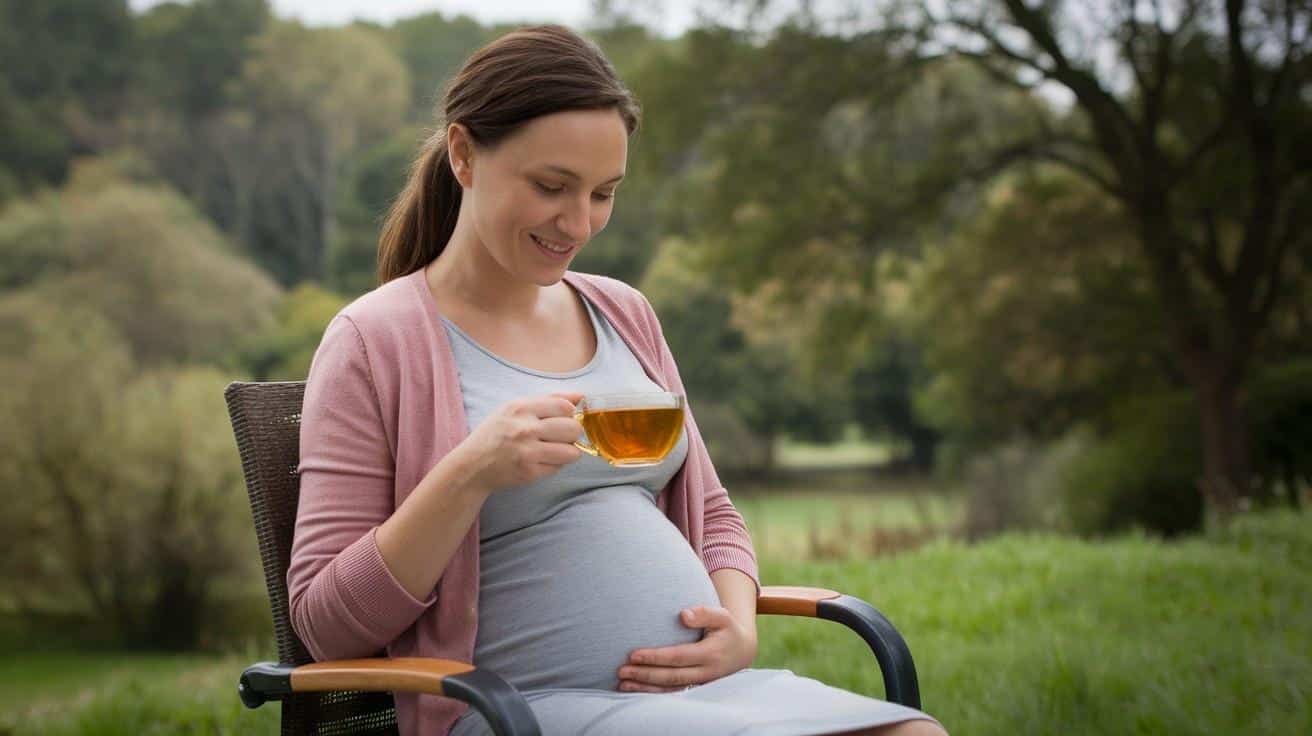
Pregnancy brings many changes, including careful consideration of food and drink choices. While herbal teas are popular for relaxation and wellness, they require special attention during this sensitive time.
Many herbs have different properties that may affect pregnancy. Some traditional teas contain natural compounds that could influence hormonal balance or stimulate the uterus.
Always consult with your healthcare provider before consuming any herbal tea during pregnancy. Medical professionals can provide personalized guidance based on your specific health situation and pregnancy stage.
Safe alternatives like ginger tea (in moderation), rooibos, and certain fruit teas might be appropriate options when approved by your doctor. Remember that even natural substances can have powerful effects during pregnancy.
Prioritize your health and your baby’s well-being by making informed choices about all consumables during this special time.
Why Are Certain Teas Risky During Pregnancy?
Some herbal teas can cause issues during pregnancy due to compounds that may affect the uterus. Caffeine found in black and green teas should be limited as it crosses the placenta.
Certain herbs, like chamomile, might cause contractions when consumed in large amounts. Peppermint tea could worsen heartburn, which is common during pregnancy.
Always check with your doctor before drinking any tea while you are pregnant. Most doctors suggest limiting yourself to 1-2 cups daily of approved teas.
Safe options include ginger tea (good for morning sickness) and rooibos tea (naturally caffeine-free).
Teas That Causes Miscarriage During Pregnancy: What to Avoid

1. Black and Green Tea
High amounts of caffeine in these teas may increase risks during pregnancy. Studies suggest limiting caffeine intake to less than 200mg daily.
These common teas contain stimulants that can affect blood flow to the developing baby and potentially impact fetal growth. Always check caffeine content and consider switching to pregnancy-safe options that support maternal health without compromising fetal development.
2. Chamomile Tea
Despite its reputation for calming effects, this flower-based tea contains compounds that might stimulate the uterus. Research indicates caution is needed, particularly during the first trimester when the pregnancy is established.
The medicinal properties that make it useful for menstrual cramps are precisely why healthcare providers suggest limiting consumption during pregnancy. Consider discussing alternatives with your healthcare provider.
3. Sage Tea
This culinary herb makes a flavorful tea but contains substances known to affect uterine tissue. Traditional medicine practitioners have historically used sage for reproductive health purposes, which signals its potency.
Modern research confirms these effects, making it important to avoid concentrated forms during all pregnancy stages. Even cooking with small amounts differs significantly from consuming it as a concentrated tea.
4. Hibiscus Tea
The bright red beverage contains powerful plant compounds that may influence hormonal balance. Research suggests these compounds can affect uterine tissue and potentially cause contractions.
The tart flavor makes it popular in many tea blends, requiring careful label reading. Even products marketed as “fruit teas” might contain hibiscus as a primary ingredient, necessitating thorough investigation before consumption.
Myths vs. Facts: Tea Consumption During Pregnancy

| Aspect | Myth | Fact |
|---|---|---|
| Herbal Teas | Herbal teas are always safe since they’re natural. | Some herbal teas can stimulate contractions or cause miscarriage due to specific herbs. |
| Caffeinated Teas | Drinking any amount of caffeinated tea during pregnancy is dangerous. | Moderate caffeine intake (below 200 mg daily) from teas like black or green tea is generally safe. |
| Chamomile Tea | Chamomile tea is harmless for pregnant women because it helps relaxation. | Chamomile may stimulate uterine contractions, posing potential risks during pregnancy if consumed excessively. |
Signs of Tea-Related Complications in Pregnancy
After consuming teas that carry pregnancy risks, observe for symptoms like abdominal cramps, spotting, nausea, dizziness, or increased contractions.
These symptoms can indicate possible complications and require immediate attention. If any discomfort persists or worsens, or if there is unusual pain or bleeding, contact your healthcare provider promptly.
Timely medical advice ensures your safety and your baby’s well-being. If uncertainties arise regarding tea choices during pregnancy, always prioritize professional consultation.
Safe Teas to Enjoy During Pregnancy

1. Ginger Tea
Ginger tea offers comfort during pregnancy by easing nausea and digestive discomfort. Its naturally warming quality can settle the stomach, making it a common remedy for morning sickness.
Many expectant mothers prefer ginger tea due to its mild, spicy taste, which can also support hydration without introducing caffeine or unwanted additives.
2. Peppermint Tea
Peppermint tea provides relief for digestive issues common during pregnancy, such as bloating or nausea. Its refreshing flavor can help soothe an unsettled stomach and ease symptoms of morning sickness.
As a caffeine-free herbal option, peppermint tea is often recommended for expectant mothers seeking a calming and beneficial beverage.
3. Rooibos Tea
Rooibos tea is a naturally caffeine-free beverage rich in antioxidants, making it an ideal choice during pregnancy. Its mild, nutty flavor can help with hydration while also providing essential minerals beneficial for mother and baby.
Rooibos is a gentle and calming tea widely enjoyed for its comforting qualities without added risks.
4. Lemon Balm Tea
Lemon balm tea is commonly chosen during pregnancy for its calming effects, aiding relaxation and reducing stress. With a subtle, citrus-like aroma, it gently promotes a sense of tranquility and supports restful sleep.
Expectant mothers find lemon balm tea a pleasant, caffeine-free option for unwinding during their pregnancy.
Tips for Safely Enjoying Tea During Pregnancy
Enjoying tea safely during pregnancy involves carefully checking labels to identify ingredients clearly. Pay attention to listed herbs and caffeine levels, and choose brands known for quality control.
Selecting reliable brands helps minimize risks related to contamination, such as exposure to heavy metals or unidentified substances. If uncertain, consult a healthcare professional to confirm the tea’s safety.
Being cautious and informed ensures both comfort and safety throughout your pregnancy.
Special Tips
- Opt for shorter steeping times to reduce caffeine and tannin concentration
- Rotate between safe teas like ginger, peppermint, and rooibos for variety and balance.
Summing it up
Ensuring tea safety during pregnancy is essential for both the mother and the baby. Certain teas, such as those containing high caffeine levels or herbs like pennyroyal and hibiscus, may pose risks.
These teas could lead to uterine contractions or other complications. Instead, safer options like ginger, peppermint, and rooibos tea can be comforting choices.
It’s important to read labels carefully and choose products from trusted sources to avoid unwanted ingredients. While some herbal teas are considered safe, their effects during pregnancy are not always well studied.
Moderation is key, and the best approach is to consult a healthcare provider before adding any new tea to your diet.
Prioritizing safety ensures a healthy and worry-free pregnancy while allowing you to enjoy soothing beverages within recommended limits.
